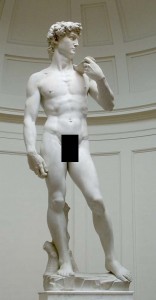-
Stafford Gregoire changed their profile picture
-
-
Technology, Self, and Society
Stafford Gregoire commented on the post, Question for Feb. 20 Winter InstituteI want to reconfigure my research paper assignment so that the students will create a short “graphic research autobiography” about themselves built around two photographs: a selfie and a family portrait. This […]
-
Technology, Self, and Society
Stafford Gregoire commented on the post, Visual recap of First MeetingPretty cool graphic
I will try to play “catch up”
It’s interesting! -
Technology, Self, and Society
Stafford Gregoire commented on the post, Turkle's MoralismI hadn’t keyed in on her moralizing Chris, but you nailed it.There’s something to this whole academic version of the interweb and social media that is decidedly, well, “posh.” Turkle’s tone deaf response towards […]
-
WesternQueensLand
I read Alone Together[1] with real interest. I am actually excited about doing some writing and thinking. Interestingly the subject of this seminar “Technology, Self, and Society” is what I’ve been thinking about in my own personal quest for a richer life. This book, this subject, my IG, Twitter, Twitter and FB accounts and the iPhone that keeps them all handy and available are bothering me. I can tell that I spend too much time performing (documenting) my life for the web for my “friends.” I think I am particularly good at documenting the detritus of life, whether on Fire Island or in Woodside. I see myself as the Edward Weston (ex) of litter. But in documenting every scrap of mortality I loose some of my thoughtfulness. I think this is what I
“Introduction”
This is a thought provoking introduction (& hopefully, book). I have to confess that I am “off-put” by the initial focus on “robots,” which to me is off topic. I think what is really on target is the Winston Churchill quote on page 19 that Turkle repurposes: “We shape our buildings and then they shape us” (Turkle 19). I am not interested in the basics of this statement, but how we’ve allowed the facility and instantaneity of how our $mart phones and the incumbent “digital commons,” and technology generally has shaped us. I think the ability to throw my thoughts out in the form of tweets, tumbler posts, IG images has, to some extent, lessened my investment in each of these thoughts. (Strangely, taking this to the extreme, I was more invested in “Worship Bike” [my 70s-80s graffiti tag] which I risked freedom and safety to throw up than I am in my witty haiku and senryu on cultural observations.)I started out by writing my notes in rhyming iambic couplets. I will post those elsewhere (twitter #turkletweets and here’s the meme version I even wrote a sonnet).
I think that Turkle raises interesting questions that I have been thinking about in my own meditations on my internet usage (specifically Twitter, Instagram and Facebook). I will try to address Turkle and when appropriate (& not too grandiloquent) I will address things I have been meditating on in my journal and twitter feed and Instagram #phoku #haiku meme feed. Turkle writes “We are lonely but fearful of intimacy,” which seems intuitively so correct, but I think is not quite on (1). We are not all lonely, nor are we seeking intimacy or any real connection with others on line. I think that we seek something that society (modern, consumerist, “late stage capitalist,” whatever) simultaneously lauds and denies us: “celebrity.” We are all, “legends in our own minds,” as a messenger I used to work with said in 1985.
I see my tweets and a latter day, crime free, low impact version of Jean Michel Basquiat’s “Samo-isms.” I’m not sure how this attempt to be heard addresses the desire for “intimacy” that Turkle plays with in her title “Alone” Together. The fact that I put my tweets on-line (and under 2 different identities) rather than trying to publish them or suggest that I want some sort of privacy, differentiation or “space” that is not-me.
Of course, I have to admit that the vast majority of people who see my tweets, IG shots and Facebook minutiae, aren’t really people who know me. This “me” is my “on-line me. I like to think that this person is just as thoughtful and caring as I am, but I never really analyzed how my status updates, tweets and photos portray me. I will say that I notice discrepancy between some of my other friends’ feeds. We bifurcate our selves using our “digital selves” as some sort of a mental health control valve.
Turkle’s interest in “robots” doesn’t work for me. While I really like how well nuanced her use of this metaphor/example is, I don’t think it really fits into how I initially approached this topic (though this is of course, ‘my take on it,’ and it is something I’ve been thinking about a lot). I don’t think that the “new identities [we forge] in online spaces” are rooted in, or related to, robot tolerance as Turkle suggests (Turkle 2). I was impressed and convinced by her analysis of robots increasing integration into our culture in pages 3 through 13. But as I read it I was curious about different ideas. Turkle looked into how they “performed” biological behavior (zoo displays 4 and pet dolls 9). But I was thinking that these were more like (Westworld-esque) porn or Las Vegas simulacrum of New York in the Casino “New York, New York.” By “porn” I don’t mean pornography, but something more akin to “food porn.” [2]
One of the reasons that I have been thinking about my inter-web and smarty-pants-phone use is because of the huge amounts of time they steal from me (often in just 3 minutes at a clip). I now have a device that I can look anything in the world up on and I spend much of my time visiting the ne’er do wells I left in Boston in the 70s as deadbeats. So Turkle’s observation about teens texting in 2009 was particularly relevant to me: “[we] are connected all day but are not sure if [we] have communicated” (17). We let pre-fabricated memes and the occasionally headline from a newspaper do our political talking for us. We are communicating through symbolic semaphores: wave the “anti gun flags” to make sure we are still -more-or-less- traveling in the same direction, part of the same fleet; we don’t get close enough to really communicate.
This alienation, or lack of communication is, well, not really that surprising. Really, how often have we ever had heart-to-heart conversations about things that really matter to us, even before Facebook? I mean there’ve been some “I love you man” (often drunken) expurgations over time, but the long walks where we discuss our philosophies are few and far between. Unless our partners are leaving us we probably won’t go to a café and really discuss our inner-most feelings on things. After a perfunctory riff on emoticons, which I think is a missed opportunity to look at how we really use “shorthand” to communicate, Turkle writes that; “[smart phones and apps] are not so good for opening a dialogue about complexity of feeling” (19). But I think that they could be.
Is this a byproduct of the internet and its apps, or is it because of the corporate structure that brings it to us. I think that this is a big “conspiracy theory” but perhaps an internet not run by corporate America we would have more meaningful activities, games and apps. I think that if we didn’t live in the culture we live in we would have an internet that is very different.
[1] Turkle, Sherry. Alone Together: Why We Expect More from Technology and Less from Each Other. New York: Basic, 2011. Print.
[2] My definition of this word is looser that simple “pornography:” I think I’m using it more in the sense of “food porn” as first articulated by critic Rosalind Coward in her 1984 book Female Desire in which she writes:
Cooking food and presenting it beautifully is an act of servitude. It is a way of expressing affection through a gift… That we should aspire to produce perfectly finished and presented food is a symbol of a willing and enjoyable participation in servicing others. Food pornography exactly sustains these meanings relating to the preparation of food. The kinds of picture used always repress the process of production of a meal. They are always beautifully lit, often touched up. (103)
Coward, Rosalind. Female Desire: Women’s Sexuality Today. London: Paladin, 1984
http://westernqueensland.wordpress.com/2014/09/15/alone-together-response-rough-draft/
I heard this news report on WNYC and I will edit this post to include any changes soon.
http://www.wnyc.org/story/reading-screens-messing-your-brain-so-train-it-be-bi-literate/?utm_source=local&utm_medium=treatment&utm_campaign=daMost&utm_content=damostviewed -
Stafford Gregoire changed their profile picture
-
Stafford Gregoire became a registered member



